Annual Meeting Corporate Workshops
Did you miss your chance to view this year's Corporate Workshops? We are excited to announce that select workshops are now accessible to AMP members and others in the molecular diagnostics community. Please see below for direct links to view the workshops. The workshops will be available until November 2025.
Note: Please read the privacy policy and disclaimer before viewing the workshops. In order to view the workshops, you will be required to register with your contact information and agree to be contacted by the Host Company.
Click Here to View the Corporate Workshop Program
A B C D E F G H I J K L M N O P Q R S T U V W X Y Z
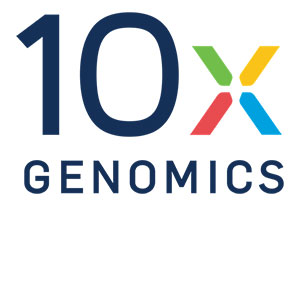
Highly Multiplexed Spatial Transcriptomics in NSCLC Biomarker Discovery
Non-small cell lung cancer (NSCLC) is a significant source of morbidity and mortality and remains a significant health problem in the United States. Using 10x Xenium spatial transcriptomic studies, we have identified spatial biomarkers for both EGFR WT and EGFR mutant NSCLC lung cancer patients. The highly multiplexed nature of the Xenium platform allows for the discovery of these spatial biomarkers which cannot be discerned through single-plex immunohistochemistry, bulk RNA-sequencing or even single cell RNA-sequencing. We will discuss the use of spatial transcriptomics in biomarker discovery and translational studies and discuss the unique feature sets captured by spatial transcriptomic assays.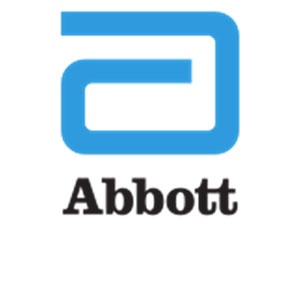
Impact on Clinical and Operational Outcomes: The Power of Testing Consolidation with Alinity m
Join us for an insightful workshop exploring the transformative impact of testing consolidation on the Alinity m system. Hear from Sheryl Alberta – Lab Director at Corewell Health and Dr. Stefan Riedel from Beth Israel Deaconess Medical Center as they discuss how the Alinity m has positively impacted their laboratories and shaped their lab for the future. Attendees will learn how Abbott’s testing solutions, can significantly enhance both clinical care and operational outcomes.
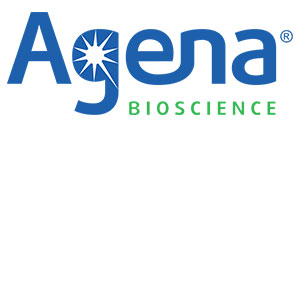
Molecular Profiling in Difficult Samples From NSCLC Quickly and Cost-Effectively
Next-generation sequencing (NGS) is vital for profiling solid tumor samples but faces challenges like complex workflows and bioinformatics, resulting in high costs and long turnaround times. Additionally, formalin-fixed, paraffin-embedded (FFPE) biopsies often produce poor-quality, low-quantity DNA, leading to significant failure rates with NGS, known as Quality/Quantity Not Sufficient (QNS).
Join Dr. Ravindra Kolhe, Professor and Chair of Pathology at Georgia Cancer Center, and Dr. Darren Davis, Senior Vice President at Precision For Medicine, for a workshop on a targeted workflow using the Agena MassARRAY System. This robust, cost-effective multi-gene mutation profiling approach provides rapid insights from low-input NSCLC-derived FFPE samples, achieving 100% concordance with NGS and high reproducibility, even for samples previously deemed QNS.

Dr. Chad Bousman, Associate Professor at University of Calgary, and Dr. Vicky Pratt, past president of AMP, have been at the forefront of pharmacogenomics, continually keeping pace with the evolving PGx landscape to implementing relevant, guideline-driven testing.
In this workshop they will discuss the design, performance and implementation of the new VeriDose Core v2.0 PGx Panel, which contains all AMP Tier 1 and Tier 2 consensus recommendations for standardization of alleles for clinical pharmacogenomic genotyping assays. Attendees will gain insights into these evidence-based guidelines and the implementation of standardized PGx testing within the laboratory.
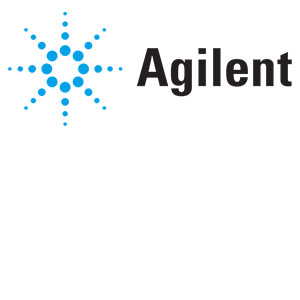
Agilent hosts: (1) Early OncNGS consortium data using the Agilent Avida technology, an advanced multiomic target enrichment tool. OncNGS aims to develop an integrated pan cancer assay to be used in future distributed workflows for potential diagnostic, predictive, prognostic and theranostic analysis of liquid biopsies. (2) Data from the DOvEEgene DNA Test, targeting ovarian and endometrial cancer using Agilent’s SureSelect technology, presented by Dr. Ragoussis of McGill.
Note: Products mentioned are for Research Use Only. Not for use in diagnostic procedures.
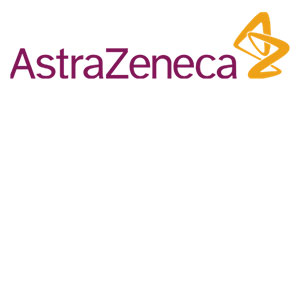
From Biospecimen to Biomarker: Evolving Lung Cancer Care With ctDNA Innovations Beyond Genotyping
Circulating tumour DNA (ctDNA) is a recognised biospecimen for genotyping in advanced non-small cell lung cancer (NSCLC). Its emerging utility includes serving as a biomarker for prognostication and treatment monitoring for the settings of advanced and early-stage disease. This presentation will cover the biology of DNA shedding to measure disease burden before and after treatment. It will discuss the rationale for the long-term goal of incorporating ctDNA status into NSCLC staging and real-time treatment monitoring. Outlining latest data and evidence gaps, while also addressing steps for translating these advancements into clinical practice during the Q&A session.

This workshop underscores the value of early testing for biomarkers of disease progression in patients with estrogen receptor-positive metastatic breast cancer. ESR1 mutations have been identified as influential factors that can lead to loss of aromatase inhibitor activity and clinical progression. Serial testing of ESR1 mutations may proactively detect endocrine therapy resistance before radiologic progression occurs.

Identifying PIK3CA, AKT1 and PTEN-Altered HR+/HER2- Advanced Breast Cancers
This session aims to support pathologists in understanding the importance of the PI3K/AKT/PTEN pathway in HR+/HER2- aBC and identifying all the actionable biomarkers in this pathway via NGS panel testing.

Some of the most important carrier screening genes (e.g. SMN1, HBA1/2, CYP21A2, F8) are also the most challenging and intractable using short-read NGS. This requires the maintenance of multiple testing workflows, decreasing operational efficiency while still not providing robust coverage of these targets. In this workshop, we will showcase the design and performance of the AmplideX® Carrier Plus Kit, combining Amplidex chemistry with the Oxford Nanopore® platform to identify the most challenging genetic alterations like CNVs, large inversions, and pseudogenes using a consolidated workflow. Additionally, you will learn about the software included with the kit to enhance data analysis and provide valuable insights. Lastly, we will feature a presentation from an external early access laboratory outlining their experience with the assay, highlighting performance and ease-of-use.

ESR1 & Beyond: Leveraging Exosomes for Highly-Sensitive Variant Detection on qPCR
ESR1 mutations are the leading cause of primary treatment resistance in HR+ metastatic Breast Cancer (mBC). Up to 40% of HR+ mBC patients on Aromatase Inhibitors will develop ESR1 mutations. ESR1 mutations in the ligand-binding domain leads to constitutive activation of the estrogen receptor (ER) in the absence of estrogen, thus via ESR1 mutations, estrogen-dependent disease becomes an estrogen-independent disease. In this workshop, we will showcase the design and performance of the QuantideX® qPCR ESR1 exoMutation Kit combined with the ExoLution Plus cfDNA/exosomal RNA Isolation Kit to deliver sensitivity of ≤0.1% for 11 ESR1 mutations located in the ligand-binding domain, utilizing the power of cfDNA and exosomal RNA isolated from exosomes to deliver best in class performance.

Fireside Chat: LDT Compliance in an Uncertain Environment
With so much uncertainty around the FDA’s LDT Rule, it is challenging for laboratory leaders to make firm plans for how to achieve compliance. This session will consider three different tactical approaches for stage I of the rule: a) labs actively preparing for compliance; b) labs preparing, but cautiously using resources; and c) labs that are deferring preparation. No matter where your lab is on the spectrum, please join this interactive session as we discuss aspects of each approach and the practicalities of adjusting to the new regulatory landscape.
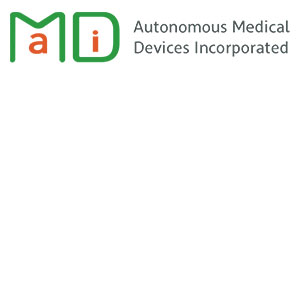
A Scalable 32 Target Multiplex RT-PCR in < 10- minutes: Designed for Point of Care Settings
Autonomous Medical Devices Incorporated (AMDI) has developed a compact, easy to use molecular point-of-care system that utilizes multiplexing capability specifically for CLIA-Waived Environments. This ultrafast RT-PCR system leverages Autolab HBH technology to overcome unacceptable tradeoffs of time, technical complexity, quality, and cost of current sample preparation methods necessary for molecular testing. This technology allows AMDI’s Fast PCR to not only be scalable up to 32 targets per sample, but to do so in less than 10 minutes while retaining the gold standard RT-PCR sensitivity and specificity.
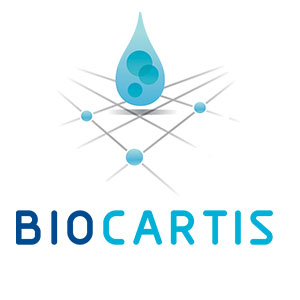
Join us for a workshop focused on optimizing Fine Needle Aspiration (FNA) workflows using the Idylla™ Platform. Dr. Sura (MD Anderson Cancer Center) will present a comprehensive feasibility and performance study showcasing the rapid assessment of EGFR, KRAS, BRAF and GeneFusion in cytopathology. She will highlight the integration of cytology and small biopsy specimens, particularly in lung and thyroid cancers, within a large cancer center.
Highlights:
• Evaluation of Idylla™ for rapid on-site assessment and archival aspirate smear and FFPE cell block testing
• Comparison with large panel NGS assays
• Data of interest to cytology labs
• Review of NTRK case studies within the research of Idylla™ GeneFusion
This workshop will provide insights for pathologists seeking to enhance workflows and embrace cutting-edge cytopathology techniques.

This session explores the groundbreaking use of optical genome mapping (OGM) in identifying and understanding hematologic malignancies. Dr. Susan Crocker will focus on how OGM aids in the analysis of Acute Myeloid Leukemia (AML), presenting case studies where VIA interpretation software provides comprehensive genomic profiles. Dr. Tracy Tucker will present on OGM’s effectiveness in detecting genetic abnormalities in Chronic Lymphocytic Leukemia (CLL), highlighting advantages over traditional methods and the impact of findings. Additionally, Dr. Gokce Toruner will share extensive clinical research, detailing results from over 500 hematologic malignancy samples that utilized OGM for better genetic insights. The session will close with a Q&A session led by Dr. Alex Hastie, Vice President of Clinical and Scientific Affairs at Bionano.

OGM in Action: Transformative Insights in Sarcomas, Lymphomas, and More
This session will focus on optical genome mapping (OGM) in solid tumor research. Dr. Ying Zou will discuss the use of OGM in sarcoma research, she will highlight the advantages of OGM in identifying variations crucial for understanding sarcoma. Dr. Shiva Sathyanarayana will explore the application of OGM in lymphoma research, focusing on how OGM enhances the detection of genetic anomalies in lymphomas, providing improvements over traditional methods and more accurate understanding. Dr. Dan Ackerman will share his clinical research on the use of OGM in brain and liver tumors, demonstrating how OGM can reveal hidden genetic alterations and structural variants that are crucial for understanding complex tumors. The session will conclude with a Q&A session moderated by Alex Hastie, VP of clinical affairs.
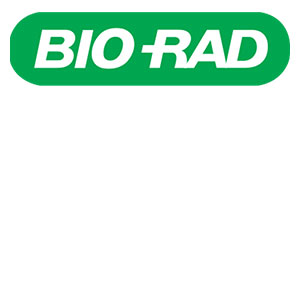
Droplet Digital PCR (ddPCR) in Precision Oncology and MRD: Perspectives from the Trenches
This workshop will discuss how Droplet Digital PCR (ddPCR) can be used for highly sensitive mutation detection assays, as well as for emerging applications such as Molecular Residual Disease (MRD) monitoring. It will highlight the advantages such as speed, lower cost, and reduced workflow complexity compared to orthogonal molecular testing technologies, especially for circulating tumor DNA (ctDNA) analysis. Dr LaFramboise will discuss the development of a MRD assay using ddPCR and its application in an integrated health network setting. Dr. Pestano will discuss how his team at Biodesix leverages ddPCR to develop novel blood tests to aid the diagnosis and management of lung cancer, and how Biodesix is collaborating with academia and industry to drive widespread clinical adoption of ctDNA testing.
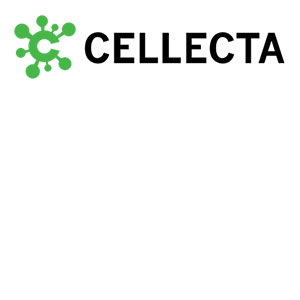
Cellecta's DriverMap Adaptive Immune Receptor (AIR) Profiling Assay offers a breakthrough solution for comprehensive TCR and BCR repertoire analysis in both bulk and single-cell samples. This innovative technology provides researchers with sensitive, reliable, and cost-effective data for target discovery and validation in cancer, infectious disease, vaccine research, and more. By overcoming the limitations of existing complex and expensive methods, the AIR Profiling Assay enables deeper insights into disease mechanisms and will accelerate the development of novel therapeutics and diagnostics. Case studies from collaborators demonstrate the assay's impact across multiple fields of immunology research.
.png)
Circulating cell-free DNA (cfDNA) profiling from blood plasma has demonstrated considerable potential for clinical applications in breast cancer, yet urinary cfDNA remains less explored. In a previous pilot study of plasma-derived and matching urinary cfDNA samples obtained from 15 presurgical triple-negative breast cancer patients, we have found plasma and urines may be complementary liquid biopsy samples for molecular profiling of tumor by targeted sequencing.

Whole genome sequencing (WGS) and large gene panels in clinical cancer diagnostics can enhance diagnostic precision and significantly improve medical-decision making. The increased yield of these tests includes the identification of a wider array of actionable somatic variants and the detection of germline variants, adding complexity to reporting workflows. Comprehensive, expertly curated content characterizing reported genetic variants is needed to improve the efficiency and accuracy of diagnostic workflows. Our workshop will explore how the integration of tools like the Clinical Knowledgebase of somatic variants and associated therapies and trials and the Mastermind Genomic Intelligence Platform of curated and indexed germline variants can streamline WGS and large gene panel diagnostics, enhancing the identification of actionable variants in somatic and hereditary cancers as well as non-malignant diseases.
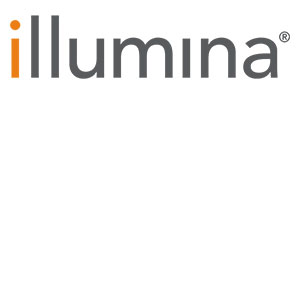
Though biomarker testing is now considered standard of care for therapeutic decision making in cancer care, real-world evidence has identified several practice gaps, resulting in many patients not receiving biomarker testing results and/or matched targeted therapies.
The audience will take part in a discussion with an expert panel of two pathologists and an oncologist on:
-Challenges and practice gaps identified in precision medicine implementation
-Coordination of a multidisciplinary team to ensure optimal biomarker detection and targeted therapy utilization, leading to more favorable patient outcomes.

When choosing the optimal NGS approach for biomarker testing, there are a wide variety of factors to consider for successful delivery of results. The optimal specimen type (tissue and plasma) and sequencing approach (rapid targeted panel and comprehensive) needs to be considered for each patient case across cancer types. The audience will participate in a discussion with an expert on clinical scenarios that can impact NGS success rate and selection of the best specimen and NGS approach including:
• Limited tissue or DNA/RNA input
• Aggressiveness of patient’s disease
• Determining clinical trial eligibility
• Detection of gene signatures (i.e. TMB) & rare variants

Practical Considerations for Integrating Enterprise-Wide Pharmacogenomics (PGX)
The growing evidence of pharmacogenomics across many clinical applications (oncology, cardiology, pain management) and the value-based care it offers has made its utility palatable across the healthcare industry. However, the lack of policy expansion or access and turnkey technology solutions has restricted adoption and utilization.
Atrium Health has researched and developed an integration model for enterprise wide PGx testing in a community-academic hybrid setting, developed in part with Illumina array technology. The considerations presented will likely guide labs and healthcare organizations with their approach to support PGx integration across service lines and align with system strategic goals and initiatives.
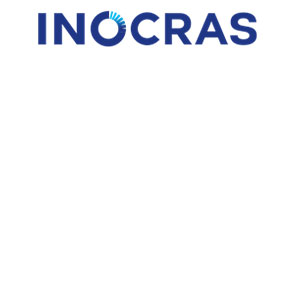
Whole genome sequencing (WGS) has transformed the landscape of genomic testing, offering unmatched precision in identifying complex mutations across cancer and rare diseases. By integrating WGS with advanced bioinformatics, Inocras provides a comprehensive genomic view through paired somatic/germline testing (CancerVision) and germline testing (RareVision), delivering clinically actionable insights. In addition to comprehensive cancer profiling, Inocras's MRDVision employs the WGS approach for ultra-sensitive, panel-free detection of minimal residual disease (MRD) at the parts-per-million (ppm) level. This workshop explores the clinical integration of Inocras' WGS technology for cancer profiling and MRD detection, demonstrating how our solutions provide actionable insights with broad clinical impact while achieving fast turnaround time and affordability.
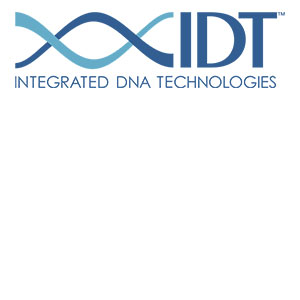
Scoring the GOAL: The Genomics Organization for Academic Laboratories
The GOAL (Genomics Organization for Academic Laboratories) Consortium unites academic researchers, institutions, and industry partners to advance genomics research by making technologies more accessible and affordable. Through its collaboration with Integrated DNA Technologies (IDT), the consortium reduces barriers to advanced research, enabling academic labs to conduct high-quality genomics studies.

Allele-specific copy number analysis (ASCNA) is critical to define the extent of tumor suppressor loss of function (LOF) and contextualize the clinical response to synthetic lethal (SL) agents. Targeting tumor suppressors through SL is poised to usher in a new wave of precision oncology, but there remains a need for assays that provide reliable ASCNA. Learn how Repare Therapeutics developed an Archer technology-based NGS assay designed to perform retrospective ASCNA and identify biallelic LOF in genes predicted to sensitize to an investigational SL agent. Hear how their post-hoc analysis demonstrated the potential of biallelic LOF as a relevant biomarker in patients with solid tumors treated with an SL agent.
For research use only. Not for use in diagnostic procedures.
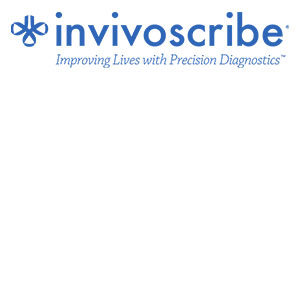
Leveraging Highly Sensitive NGS for FLT3-ITD and NPM1 MRD Assessments in AML
This workshop aims to instruct labs in bringing NGS MRD for studies of AML. Participants will learn the importance and need for highly sensitive NGS MRD assessments, explore advanced strategies to enhance detection accuracy, and learn to implement testing for FLT3-ITD and NPM1 mutations. They will master comprehensive wet lab workflows, from sample preparation to data analysis, and understand the fundamentals of bioinformatics software for monitoring MRD. By the end of the workshop, participants will be equipped to efficiently and reliably integrate advanced NGS-based MRD assessments.
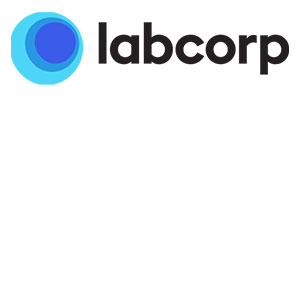
Clinical NGS has advanced precision oncology, enabling physicians to identify actionable biomarkers in patients to aid in therapy selection. This workshop highlights the value of internalizing FDA-cleared tissue and an FDA authorized targeted liquid biopsy tumor profiling kitted solutions with best-in-class bioinformatics to help provide greater access to cancer patients worldwide. This workshop will also showcase our new FDA de novo authorized liquid biopsy kitted solution and examine the validation data included in the FDA submission. Lastly, there will be a panel discussion of active users who will discuss their point of view on the value of internalizing these solutions.

High Throughput Genomic Profiling of Solid Tumor FFPE Specimens with Fully Automated Extraction
Comprehensive Genomic Profiling (CGP) enables targeted therapy in oncology by identifying actionable mutations in solid tumors. Formalin-fixed paraffin-embedded (FFPE) tissues are challenging for high-quality nucleic acid extraction, crucial for sequencing. We present the Sonication STAR, an automated solution developed by Hamilton, Covaris, and Labcorp, enhancing FFPE sample processing for CGP. This method reduces 'quantity not sufficient' (QNS) samples, improves sequencing performance, and increases fully reported tumor profiles by 16%, offering cost savings, efficiency, and reduced re-extractions in CGP workflows."

Join us to explore the shift in oncology testing from centralized labs to decentralized, patient-focused care, driven by Meridian's innovations in molecular diagnostics. Discover next-generation molecular reagents for qPCR, isothermal amplification, and NGS library preparation, and how they are advancing patient-centric oncology diagnostics.
Learn how using crude specimens like blood, urine, sputum, and stool in direct workflows shortens molecular testing times, improves test accessibility, and accelerates the development of cost-effective assays. We’ll also discuss how air-dried and lyophilized reagents support global access to molecular tests, making them suitable for point-of-care platforms and reducing resource-intensive shipping and storage.

Nanopore Sequencing: Advancing Human Genetics & Cancer Research
Join us on Corporate Workshop Day to learn how sequencing solutions from Oxford Nanopore Technologies are transforming molecular pathology. Hear about the latest developments in nanopore sequencing which provide a comprehensive view of both conventionally sequenced single nucleotide variants and small indels, and the detection of structural, repetitive, copy number, and methylation variants ? all in a single sequencing run. With its ability to read any length of DNA or RNA, from short to ultra-long, come and learn how nanopore technology empowers you to answer the bigger and bolder research questions you have always wanted to ask.
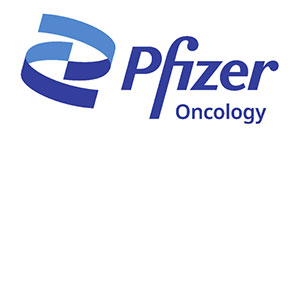
Biomarker Testing in Metastatic Colorectal Cancer: BRAF Mutation Implications
The purpose of this workshop is to educate participants on the epidemiology of mCRC, importance of BRAF as a prognostic and targetable biomarker, methods of testing for BRAF mutations, when to test patients with mCRC for BRAF mutations, and the role of multidisciplinary collaboration in testing..
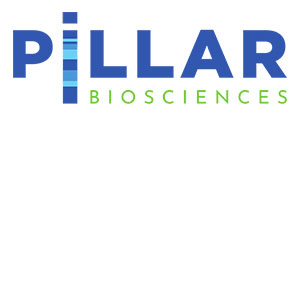
The Validation of the FDA Approved OncoReveal CDx Pan-Cancer Solid Tumor IVD
Pillar Biosciences oncoReveal CDx pan-cancer solid tumor IVD kit is an FDA PMA approved for general tumor profiling for 22 clinically relevant genes across all solid tumors, including CDx claims for KRAS in CRC and EGFR in NSCLC. This IVD kit has a rapid single-day workflow that can easily be performed by any CLIA/CAP laboratory enabled with an Illumina MiSeq Dx. This workshop will provide a detailed technical overview of this new IVD assay, review the simple NGS workflow, and discuss the analytical and clinical validation data in support of Pillar's FDA approval. We will also review Molecular Pathology Laboratory Network, Inc. (MPLN) experience and data associated with verifying this IVD for clinical and biopharma use.

Recent data and professional guidelines are driving a need for patients get on the most appropriate targeted therapy or trial as quickly as possible. This need can be challenged, however, by the time, resources and costs required to perform and analyze CGP testing. In this workshop we review the development, validation and clinical implementation of Pillar Biosciences' rapid 21-gene solid tumor & heme panel oncoReveal Nexus by Memorial Sloan Kettering Cancer Center (MSKCC). We will review this assay's concordance with the MSKCC's MSK-IMPACT® panels and discuss how this type of rapid testing can be leveraged by other clinical laboratories as tool to help sub-select and inform which patients should have CGP testing performed.

The prevailing position is that on-market Homologous Recombination (HR) DNA repair assays are sufficient to predict PARPi response in breast and ovarian cancer patients. While these assays detect the presence of genomic scars that that correlate with HRD, platinum and PARPi sensitivity, they miss subsequent events such as HRR gene promoter demethylation that restore HR proficiency and confer acquired platinum and PARPi resistance. In this workshop we will review data leveraging Pillar Biosciences rapid oncoRevealTM 4-Gene Methylation Panel (BRCA1, BRCA2, RAD51C, XRCC3) to inform methylation status as a potential additional biomarker to BRCAm and HRD scoring to guide the use of PARPi in advanced breast and other cancers.
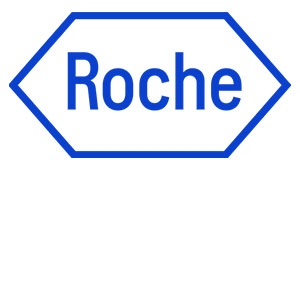
Molecular diagnostic developers face both internal and external pressures to reduce costs and improve assay performance. For example, the reverse transcription step in an RT-PCR assay drastically increases complexity encountered in molecular diagnostics. Using fast, inhibitor tolerant, and lyo-compatible reverse transcriptases can help reduce the burden on developers by enabling short overall turnaround times, streamlining or eliminating purification, and simplifying shipping and storage. Selecting the appropriate components to address the challenges in your assay can be a daunting task. At Roche CustomBiotech, we are here to assist you in finding solutions and overcoming these obstacles. Explore our wide range of reagents designed for the unique requirements of centralized and point-of-care diagnostic assay development.

Precision oncology is rapidly evolving, often driving clinical trials through a biomarker-centric approach and identifying new treatment targets. The significance of genomic signatures, such as Homologous Recombination Deficiency (HRD), has grown considerably, necessitating ongoing advancements in assay and bioinformatics development. Roche and Foundation Medicine have introduced the updated AVENIO Tumor Tissue CGP Kit V2* (Research Use Only), featuring improved workflows and bioinformatics, shorter wet-lab procedures, reduced sequencing costs, the addition of emerging oncology genes, enhanced variant calling algorithms, and a new pan-cancer HRD signature developed by Foundation Medicine. The updated AVENIO Tumor Tissue CGP Kit V2 maintains robust performance while enabling laboratories to expand their sequencing research capabilities.
* For Research Use Only.

navify Mutation Profiler* (MP) supports precision oncology by converting complex NGS data into relevant insights. With up-to-date regional guidelines, approvals, and clinical trials, it offers a secure, cloud-based solution for variant interpretation and delivers comprehensive customizable or standardized reports. navify MP is powered by expert-curated content for 19 solid tumor types and 48 hematological malignancies, encompassing >33,000 curated variants, >12,250 biomarker profiles, and >1,000,000 biomarker/disease associations. In conjunction with AVENIO Tumor Tissue CGP kits, navify MP provides functionality to interpret and report the newpan-tumor HRD signature (HRDsig) score. Leveraging a powerful algorithm trained on Foundation Medicine’s vast pan-tumor genomic database with over 100 unique genomic features, HRDsig distinguishes itself from all other HRD scores on the market.
*For Research Use Only in the US.

The new AVENIO Tumor Tissue CGP Automated Kit*, developed by Roche and Foundation Medicine, is a Research Use Only product for comprehensive genomic profiling of solid tumor specimens. It analyzes 335 genes, 4 alteration classes, and 4 genomic signatures. Featuring a panel aligned with FoundationOne® CDx panel design and robust bioinformatics from the FoundationOne® Analysis Platform, it includes a new pan-tumor HRD signature developed by Foundation Medicine. The kit offers fully automated library preparation and target enrichment with 24 hours of walk-away time via the AVENIO Edge, and approximately 3.5 hours of hands-on time from DNA extraction to results. The AVENIO Tumor Tissue CGP Automated Kit demonstrates robust performance and radically simplifies sequencing workflows through automation.
* Product in development. For Research Use Only.

Actionable Biomarkers in Early-Stage NSCLC
This presentation offers an in-depth examination of the early stage-NSCLC biomarker landscape, focusing particularly on clinical data pertaining to PD-L1, EGFR, and ALK, given the increasing importance of immunotherapies and targeted treatments in the adjuvant setting. Despite the evident advantages of comprehensive biomarker testing, obstacles persist in ensuring broad access to testing platforms and accurately interpreting results. Using EGFR and ALK biomarker testing as a case study, we will explore its significance, available testing methodologies, and appropriate timing for its application. Furthermore, we will address challenges associated with EGFR and ALK testing, strategies for its integration in different practice settings, and clinical data demonstrating the importance of EGFR and ALK-targeted therapy in the adjuvant setting.

Overcoming Challenges in Congenital CMV Screening: Optimizing Laboratory Practices
Congenital Cytomegalovirus (cCMV) screening presents unique challenges for laboratories, particularly due to the relatively low incidence of the condition. This workshop will explore the complexities of newborn cCMV screening using nucleic acid amplification tests (NAAT). Participants will learn about quality management strategies to reduce false positives, including repeat testing. The workshop will also discuss the future of universal cCMV screening in the US, emphasizing the need for higher-throughput automated assays and cost-effective solutions. Join us to gain insights into optimizing cCMV screening protocols and overcoming the hurdles in making universal screening a reality.
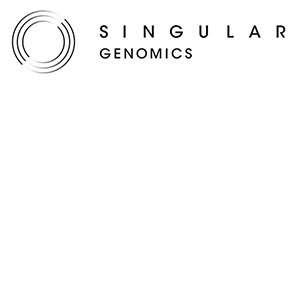
In this session, we will review the use cases and performance of the G4 Sequencing Platform across various molecular pathology research applications. We will also introduce the G4X™ Spatial Sequencer, a novel platform for ultra-high throughput multiomic profiling of RNA transcripts, proteins and fluorescent H&E (fH&E) from FFPE samples at subcellular resolution.
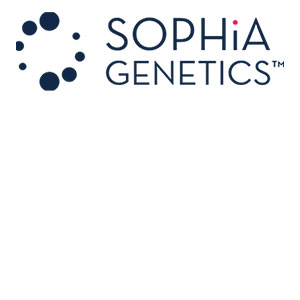
Insights with Impact: Empowering Laboratories with a Decentralized MSK Solution for CGP
Comprehensive genomic profiling (CGP) using a matched tumor-normal approach can help improve somatic detection rate and streamline interpretation.
MSK-IMPACT® powered with SOPHiA DDM™ is a CGP solution that leverages matched tumor-normal sequencing to filter germline variants and may also identify clonal hematopoietic variants, revealing mutations of true somatic origin. The end-to-end application combines the clinical expertise of Memorial Sloan Kettering Cancer Center (MSK) with the robust analytics of SOPHiA DDM™.
Join us and experts from MSK to:
• Discover the clinical utility of MSK-IMPACT® at MSK.
• Explore the decentralized workflow, robust technology, and analytical performance of MSK-IMPACT® powered with SOPHiA DDM™.

Strategic Collaborations for Expanding Liquid Biopsy Use Globally
Liquid biopsy is emerging as a revolutionary technology, promising swift and precise diagnostics. Despite its potential to significantly impact precision oncology, liquid biopsy faces challenges.
Join us for this talk to hear about the collaborative efforts of SOPHiA GENETICS and AstraZeneca in expanding global access to and adoption of MSK-ACCESS® powered with SOPHiA DDM™.
Learn about the decentralized approach, technology, and analytical performance of this liquid biopsy application.
Explore the journey of creating a global network for liquid biopsy testing.
Gain insights from the first hands-on experience with MSK-ACCESS® powered with SOPHiA DDM™ from one of the early-access healthcare institutions.
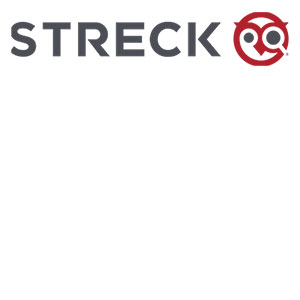
The Quest for QC Perfection: Trials, Tribulations and Test Accuracy with Patient-Like Controls
Join Dr. Luciano Soares as he shares how his lab seamlessly transitioned to MDx-Chex from their previous QC method and learn about the practical insights and lessons he gained along the way. Streck's innovative MDx-Chex controls were meticulously designed to verify every step of the BIOFIRE BCID2 and Luminex VERIGENE BC-GP and BC-GN sepsis tests, ensuring comprehensive coverage of every detectable target. Dr. Soares will highlight how these features have greatly improved his lab's accuracy and reliability. Don't miss this opportunity to elevate your lab's diagnostic capabilities!

Strategies to Drive Efficiency: Optimizing Clinical Lab Operations
Efficiency is paramount in clinical research laboratories, which play a vital role in developing the feature of healthcare. To ensure the continuity of laboratories, it is essential to carefully manage all aspects of operations, aiming to conserve resources, preserve critical research samples, optimize efficiency, reduce costs, and drive sustained success. Join our workshop to learn how Global Diagnostics Lab optimized lab operations specifically for research workflows and enhanced productivity and overall performance of their lab.

Key Considerations for Technical Assessment and Implementation of a New Multiplex Assay Workflow
Clinical laboratories strive to enhance productivity, efficiency, and regulatory compliance. Industry Lab Diagnostic Partners (ILDP) recently completed a technical assessment for molecular testing of SARS-COV-2, Flu A, Flu B, and RSV, ensuring their multiplex assay workflow meets regulatory standards. Troy Evans, ILDP Founder, will discuss the decision-making process and regulatory navigation involved in implementing this workflow, demonstrating its reliability for accurate patient testing.

This programme explores the use of in-house ultra-fast next-generation sequencing (NGS) for diagnosing non-small cell lung cancer (NSCLC) and its potential impact on patient outcomes from the pathologist and oncologist perspectives. Emphasising timely and comprehensive testing for treatment decisions, it discusses the rationale for ultra-fast NGS implementation. Considerations for establishing the protocol, including a multidisciplinary approach, are outlined. It will examine circulating tumour DNA (ctDNA) genotyping in metastatic NSCLC at diagnosis and progression, comparing it with tissue biopsy. Guideline recommendations, current genotyping applications, and pre-analytical challenges are reviewed. Case studies highlight successful ctDNA testing with limited tissue availability.

Learning Objectives:
- Name Pharmacists' General and Specialized Roles in Clinical Pharmacogenomics
- Name Key Considerations for Laboratories Partnering with Pharmacists
Abstract: This workshop will focus on laboratories collaborating with pharmacists to optimize clinical pharmacogenomics (PGx) testing. Participants will learn about the roles all pharmacists should be prepared to perform, and the roles pharmacists with specialized education, training, or experience should assume. Real-world examples of successful pharmacist-laboratory collaborations will be highlighted.

Unlocking Efficiency and Accuracy: Sample Extraction to Multiplex Digital PCR for Oncology Research
Analysis of liquid biopsy samples using digital PCR (dPCR) has been proposed to provide fast, accurate, and robust results with high sensitivity. Efficient and accurate sample preparation and analysis helps to play a crucial role in cancer research and optimizing workflows. This presentation will explore the benefits of streamlined, scalable workflows for sample processing and dPCR analysis. We highlight how a simplified dPCR workflow, with throughput flexibility, multiplex capability, and fast turnaround time can support simultaneous detection of mutations with high sensitivity and low false positives, helping to offer an advantage liquid biopsy cancer research.

Taking Sample Preparation to the Next Level by not Leaving Anything Important Behind
Utilizing magnetic hydrogel particle technology for sample preparation has been shown to improve downstream detection by 3- to 10-fold. This technology is effective with challenging sample types and can help advance research through its versatility and scalability for automation. Key products from Nanotrap® product range for infectious disease research, liquid biopsy and for enriching low-abundance proteins and peptides in biomarker discovery. By leveraging this advanced technology, researchers can achieve more accurate and efficient results, helping drive significant scientific advancements whilst streamlining their workflow and increasing overall productivity.

Complete, End-to-End Genomic Profiling Solutions Leveraging Amplicon-Based NGS
This workshop highlights the benefits of complete, end-to-end NGS solutions that are easy, fast, and robust. Hear how a lab was able to perform an analytical validation with Oncomine Precision Assay, a 50 gene amplicon-based panel for rapid, decentralized genomic profiling. Also, learn from an experienced user of Oncomine Comprehensive Assay Plus, a 517 gene CGP panel that detects relevant classes of genomic alterations plus HRD, TMB, and MSI. Discussions about the appropriate panel size are ongoing, gain insights on how labs are optimizing genomic profiling using both small and large panels.

Rapid Next-Generation Sequencing of Myeloid and Lymphoid Malignancy Samples
Over recent years there has been a continual expansion in the number of genetic alterations recommended for testing in the analysis of myeloid and lymphoid malignancy samples. Frequently, results are required in under 3-5 days. During this workshop, our speaker will discuss their use of the Ion Torrent™ Genexus™ System, a highly automated next-generation sequencing (NGS) system that can provide results within 24 hours. Targeted assays for myeloid and lymphoid samples enable rapid characterization of a broad range of DNA mutations and RNA fusion transcripts. Additionally, we’ll cover recent updates on highly sensitive NGS-based measurable residual disease (MRD) research.

Advancing Molecular Solutions: Highly Multiplexed Assays for Central Laboratory Applications
This workshop will highlight the development and implementation of a novel molecular technology with higher multiplexing capacity, enabling simultaneous detection of numerous targets in a single reaction. Designed for central laboratory settings, this unique chemistry offers streamlined workflows using Thermo Fisher Scientific platforms and vastly increased throughput, accuracy and efficiency. SpeeDx’s advanced assay technology presents a cost effective transformative solution for improving central laboratory applications.

Epitranscriptomic Insights with EpiPlex™, the AlidaBio® Solution to Enhance Molecular Analysis
The evolving landscape of molecular disease analysis highlights the need for innovative tools that offer deeper insights into disease characterization. While genomics and transcriptomics have advanced, the epitranscriptome remains underserved. AlidaBio’s EpiPlex™ Library Prep Kit addresses this gap with comprehensive epitranscriptomic profiling. This workshop will explore EpiPlex’s diagnostic potential, its integration with traditional workflows, and its compatibility with various RNA-limited sample types. Participants will also learn about the EpiScout™ Analysis Suite, AlidaBio’s user-friendly bioinformatics solution for analyzing epitranscriptomic data across experiments.
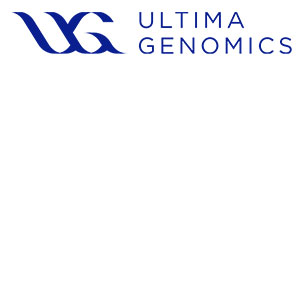
Come hear from a group of selected panelists including Pharma, Academia, Reference laboratories and Consortium leaders on the challenges and opportunities to bring MRD to clinical practice and clinical trial management.

NGS Implementation Journeys: Transforming Hospital and Academic Labs into Genomic Powerhouses!
Join us in a discussion of how health systems and academically-affiliated laboratories navigate the insourcing of NGS oncology testing for solid tumors and hematologic neoplasms. Velsera customers share their challenges and successes in selecting and validating assays, obtaining reimbursement, and designing clinical workflows to manage costs amid staffing uncertainty. Learn how a partnership with Velsera’s experts can streamline your lab’s NGS panel validations and implementations, facilitate reimbursement by CMS and private payors, accelerate case review with CGW Plus, and offer access to other professional services pre- and post-launch of your test.

Accelerating Oncology Biomarker Interpretation from NGS Panels with CGW Plus
How does your laboratory determine which oncology variants merit reporting and how to tier and interpret them in the clinical report? And how do you maintain consistency across cases, while incorporating new evidence as it becomes available? These challenges demand technology solutions that help your staff focus their medical and scientific judgment where it’s needed most. In this session, we’ll showcase how Velsera’s CGW Plus solves these challenges with:
- A reimagined interface for variant quality assessment to focus your attention on borderline calls.
- Robust workflows for rapid VUS triage, leveraging oncogenicity data and our industry-leading curated oncology Knowledgebase, for consistent application of your lab’s variant review SOPs.
- Adaptive learning capabilities that remember your past reporting decisions and interpretations and highlight newly available evidence.

Clinically relevant and other highly sensitive sequencing applications require solutions that maximize the information output from samples where template mass and quality are limited. Watchmaker leverages novel enzyme engineering with multidimensional reaction optimization to develop DNA and RNA NGS library preparation solutions that better maintain data integrity – minimizing bias and improving sequence accuracy to ultimately increase sensitivity. The resulting solutions deliver meaningful data quality improvements, especially with challenging cfDNA, FFPE, and other low-input or degraded samples.
Katherine Miller from Nationwide Children’s Hospital will present on the value of whole transcriptome sequencing for sensitive fusion detection. Stephanie Ferguson from Inocras will discuss target enhanced whole genome sequencing to differentiate between tumor-specific alterations and inherited sequences and enhance somatic variant detection accuracy across diverse populations.


















